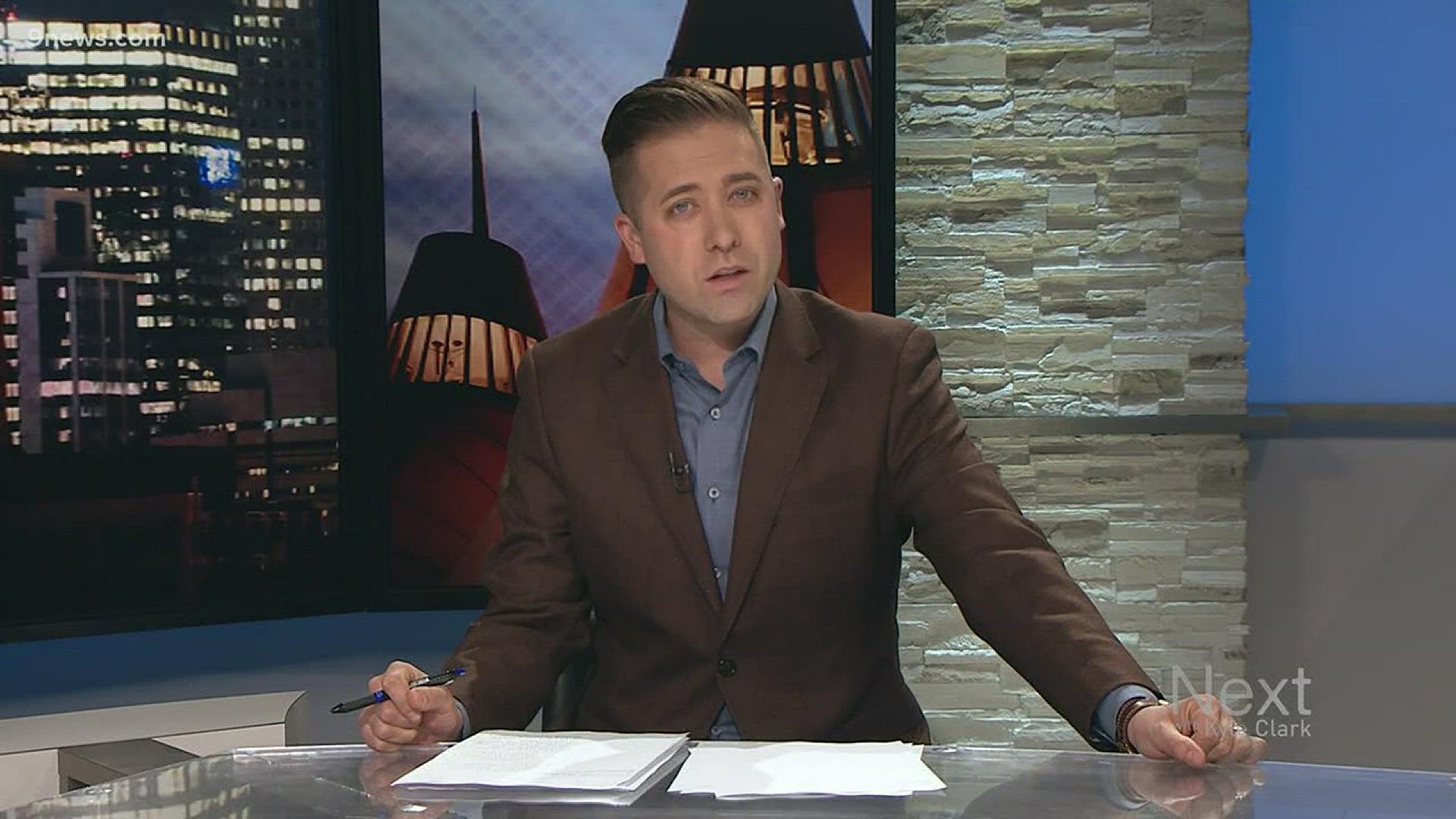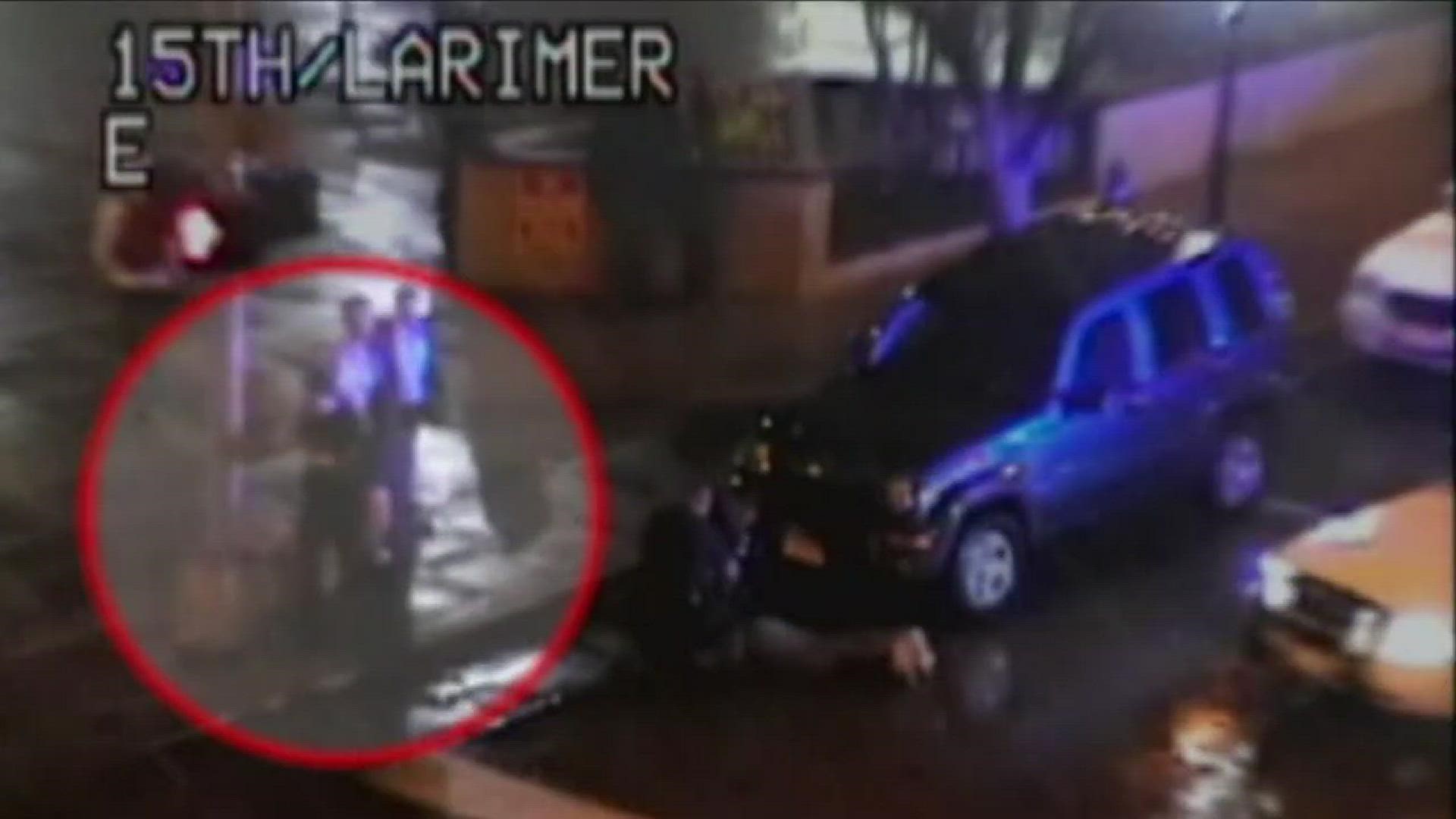DENVER — Two Denver police officers should get their jobs back, according to a Colorado Court of Appeals decision exactly 10 years after an incident that ultimately resulted in their firings.
The case stems from an April 4, 2009 arrest in LoDo. Denver's Manager of Safety, Ron Perea, disciplined the two former officers - Randy Murr and Devin Sparks - for not writing accurate incident reports.
Murr was originally suspended for three days and Sparks was docked three days pay.
Shortly after their discipline was issued in July 2010, 9NEWS obtained high activity location observation (HALO) video showing the incident.
Michael DeHerrera and Shawn Johnson were patrons at a downtown club and were asked to leave after trying to use the women's restroom.
The footage depicted DeHerrera talking on a cell phone nearby where officers were arresting Johnson.
The video, which captured video but not audio, showed Sparks approach DeHerrera, throw him face-first onto the pavement and strike him nine to 10 times on the leg with a SAP tool, according to the court documents. A SAP is a lead-weighted leather weapon. DeHerrera does not appear to resist.
Sparks then "forcefully dragged [DeHerrera] back to a police car," where he was taken to a hospital and treated for serious injuries caused by Sparks, the documents say.
After 9NEWS aired the video, two new witnesses came forward.
Perea then rescinded the officers' discipline and ordered DPD to reopen the internal investigation based on new evidence.
After another nine-month investigation, then-Manager of Safety Charles Garcia fired both Sparks and Murr.
Today's decision by the Colorado Court of Appeals determined that the Safety Manager lacked the authority to reopen the disciplinary matter, rescind the three-day discipline and order more severe penalties because the three-day discipline was final and the 10-day time frame to appeal had long expired.
"We are acutely aware that this result means that the officers essentially escape the consequences of their conduct, a result that is directly contrary to what the facts compel. But agencies and courts must employ just and proper procedures to obtain just and equitable results," the court wrote in its decision.
The initial incident ignited a long and complex series of events that ultimately led to the Court of Appeals' ruling today.
Here is a timeline of those events, as outlined by the court documents:
- April 4, 2009: DPD launches a 15-month investigation into the incident and the officers' actions. Murr and Sparks justified the use-of-force by claiming that DeHerrera had been preparing to strike Sparks.
- July 19, 2010: The Manager of Safety (MOS) found that Sparks did not use inappropriate force, but that both Murr and Sparks violated a policy to write accurate incident reports. He ordered Sparks pay a three-day fine (payable by working for three days without pay or by having 24 hours deducted from his leave bank) and Murr suspended for three days.
- This ignited a 10-day appeal period. Neither officer chose to appeal.
- Aug. 19, 2010: The MOS rescinded the first disciplinary order after two eye-witnesses came forward.
- Shortly after, Denver District Court denied the officers' request for an injunction.
- The officers had filed suit, asserting that the MOS did not have the authority to rescind a disciplinary order and issue a new one after the 10-day deadline for appeal had passed.
- Shortly after, Denver District Court denied the officers' request for an injunction.
- March 2011: The MOS terminated Murr's and Sparks' employment after finding that Sparks had used "inappropriate force" and Murr violated a provision of DPD's "commission of a deceptive act."
- A three-person hearing panel granted Murr's and Sparks' appeal that the MOS's first disciplinary order [a three-day fine and three-day suspension] had become final once the 10-day appeal period had lapsed.
- April 9, 2012: The Civil Service Commission reversed the hearing panel's decision, saying that Perea's "Manager of Safety" position "necessarily implied" the power to reconsider disciplinary orders.
- The panel then affirmed Sparks' dismissal but reversed Murr's. The Safety Manager was granted a stay that allowed the decision to dismiss Murr to remain pending the outcome of the officers' appeal, which they promptly filed.
- Dec. 9, 2013: The Civil Service Commission reaffirmed its prior decision, including upholding Sparks' and Murr's dismissals.
- Both officers then filed suit in Denver District Court.
- Nov. 29, 2017: Denver District Court affirmed the commission's decision.
- April 4, 2019: Court of Appeals reverses the Denver District Court decision, concluding that "there is no basis for the Civil Service Commission's decision that the Manager of Safety has such an implicit power."
9NEWS reached out to Perea by phone. After being told of this appeals court decision he said: "I have no comment. Thanks, anyway."
Sparks and Murr do not currently work for Denver Police.
"I think these two officers wanted to see justice done, and I think that's what the decision from the Court of Appeals has done for them, finally, after 10 years. It's shown them that the rule of law still does apply to their jobs, to their property right and their employment and to their livelihoods," said Sean Olson, the attorney representing Sparks and Murr.
When asked if they expected to wear DPD uniforms again, he said didn't know because he hadn't asked them that explicitly.
"That's going to take a lot of discussion going forward, both with the city and the officers involved," said Olson.
It's possible the city of Denver will owe the officers back pay.
"There will be a significant amount of back pay owed to each officer for the money, benefits and time that they lost being away from the Denver Police Department," said Olson.
Any back pay, if ordered, would take into account the salary and benefits the officers missed out on, minus the money they have made in the jobs they have had since they were fired.
"I just don't understand how they have the gall to keep asking for their jobs back. I feel like they should be grateful that they weren't prosecuted," said Johnson, who didn't realize the officers were still seeking their jobs back 10 years after his encounter with them.
"The last that I heard, they had been fired, and it did feel like a closed chapter, a thing to be thankful for. But no, I didn't know they had appealed that decision and that a new decision was coming out today," said Johnson. "I think that I was a victim. I think that my civil rights were violated, but I don't feel like a victim all the time, but police made me feel like a victim in a lot of ways. Being identified as a victim is validating, but it seems like an intense label because I feel strong. I feel like I've overcome something. Victim doesn't feel appropriate, but it feels appropriate to be identified in that way."
The city now has three options: accept the decision, ask the appeals court for a rehearing within 14 days or appeal to the Colorado Supreme Court.
The City Attorney's Office also released the following statement regarding today's ruling:
"The city is extremely disappointed and shocked by the Court of Appeals ruling, which effectively overrules previous decisions in its favor by the Denver District Court and Denver’s Civil Service Commission. The city can seek rehearing by the entire Court of Appeals or ask the Colorado Supreme Court to review the decision, but at this point the City Attorney’s Office, the Department of Public Safety, and Denver Police Department still need to confer about next steps."
Denver Mayor Michael Hancock also provided a statement:
"This is one of the cases that solidified for me that Denver required a change of leadership and culture at the Police Department. These changes were my top priority when I entered office in 2011 and I am proud of the reforms the department has made since then. I am determined we will never go back."
SUGGESTED VIDEOS | Next with Kyle Clark


